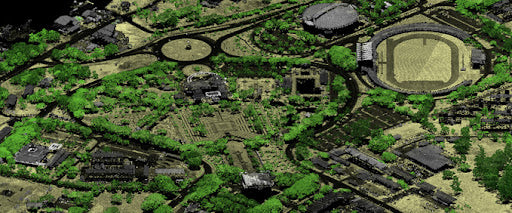Agricultural drones, a new field of agricultural development? The new concept of intelligent agriculture will help us gradually transition from traditional agricultural production technology to new intelligent agricultural production. The application of agricultural drones is a big step forward.
For farmers, aerial footage of agricultural drones will help detect the status of crops in a wide range and detect problems in time. For heavy-duty agricultural drones, pesticides can also be sprayed with the help of drones, and effective methods can be implemented for crops in a directional and fixed point.
Maybe, you don't know enough about agricultural drones, let's take a look at these FAQs !

1. Are There Any Specific Licenses Required To Fly Agricultural Drones?
Currently, flying agricultural drones is subject to federal law. The training is usually required. Flying commercial drones in the United States must comply with drone laws and regulations.
2. How High Can These Agricultural Drones Fly?
The drone flies at an altitude of about 50 – 100 m. Beyond 50 m, special consent is required.
3. Do I Need To Pay Attention To Weather Conditions When Flying Agricultural Drones?
Drones can generally fly in any weather conditions. Drones are not completely waterproof. If you're taking images in wet weather or rain and snow, see our article: 5 Tips for Flying Autel Drones in Cold Weather
4. How Far Can Agricultural Drones Fly?
It depends on the capacity and size of the drone. Some drones have more flight time and cover longer distances. The Autel EVO II RTK series can fly for about 36 minutes in a single flight, which is enough to take a large number of clear photos for data synthesis.
5. How Clear Are The Photos Taken By Agricultural Drones?

The sharpness of the drone image depends on the drone camera. Autel EVO II series has 6k camera, 8k camera and thermal imaging camera, and supports camera interchange. Drones will obtain high-quality and higher-precision pictures in real time, and can also take pictures as close as a few centimeters to objects. Unlike satellite photos, the satellite photos has low update frequency and rough quality when zoomed in.
6. What Advice Can Farmers Get From The Pictures?
The measurement and mapping of drones is of great benefit to the monitoring and management of crops. Thanks to specific calculations, the raw picture data accumulated by the drone is transformed into information that farmers can understand and use. At the same time, agricultural drones ensure permanent monitoring of the region's harvest from planting to harvest. Want to learn about drones for agricultural surveying and mapping? Please see the source: Can Autel EVO II Drone for Mapping of Agriculture?
7. What Are The Main Benefits Farmers Can Expect From Using Agricultural Drones?
Agricultural drones help farmers optimize input (fertilizer, seed, water) use, respond to risks (weeds, fungi, pests) faster, save harvest time (confirm accepted treatments/actions), increase variable rate prescriptions Real-time and estimated returns in the field.
8. Can Smart Agricultural Machinery And Agricultural Drones Be Mixed?
As of now, drones cannot communicate directly with agricultural equipment. The drones are given high-resolution images taken over the area, and the synthetic information is processed by third-party software and produced by the customer into different aerial solutions. Thereby deploying your farm equipment rationally according to the plan.
9. What Are The Expectations For The Agricultural Drone Market In The Next Few Years?
It is expected that the use of agricultural drones will be greatly expanded in agriculture, and it will gradually become intelligent and precise to carry out modern agricultural production and improve the level of agricultural science and technology.
10. What is the price of agricultural drones?
Standard-purpose small drones start as low as $500. For the agricultural industry, consumer drone prices without specific technology range from $2,000 to $3,000. Prices start at $10,000 for truly high-tech drones dedicated to farming.








